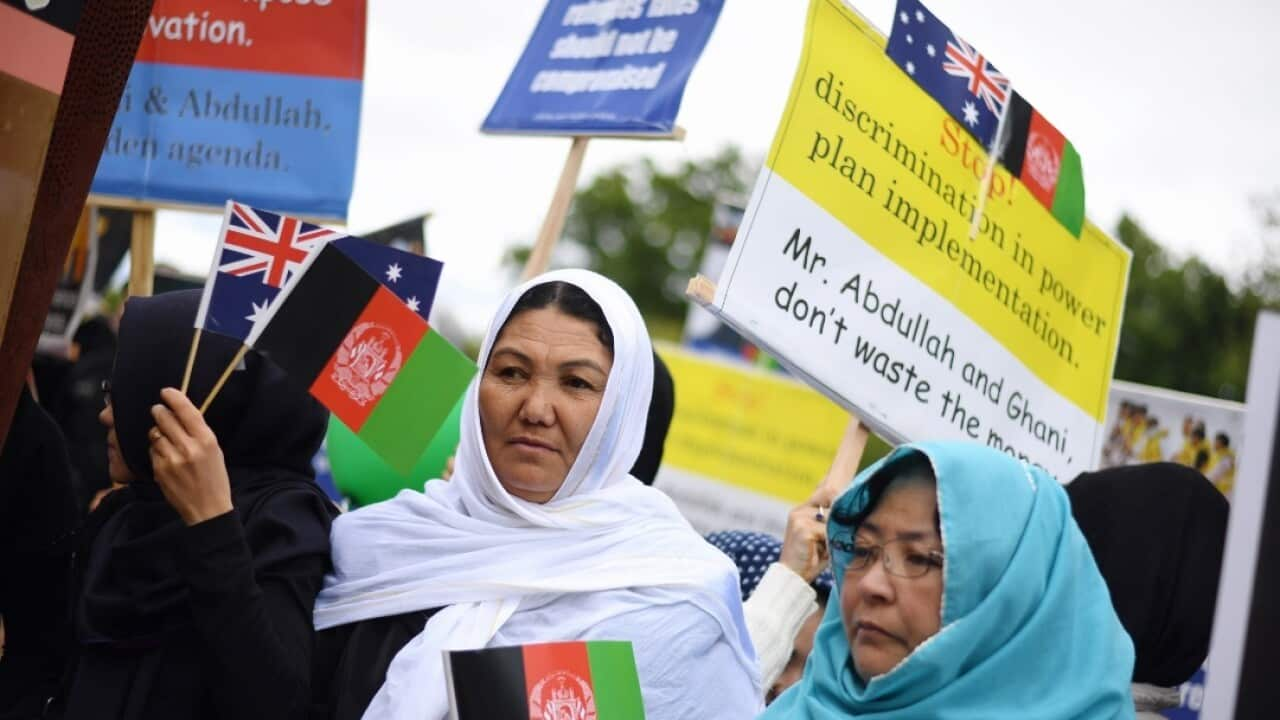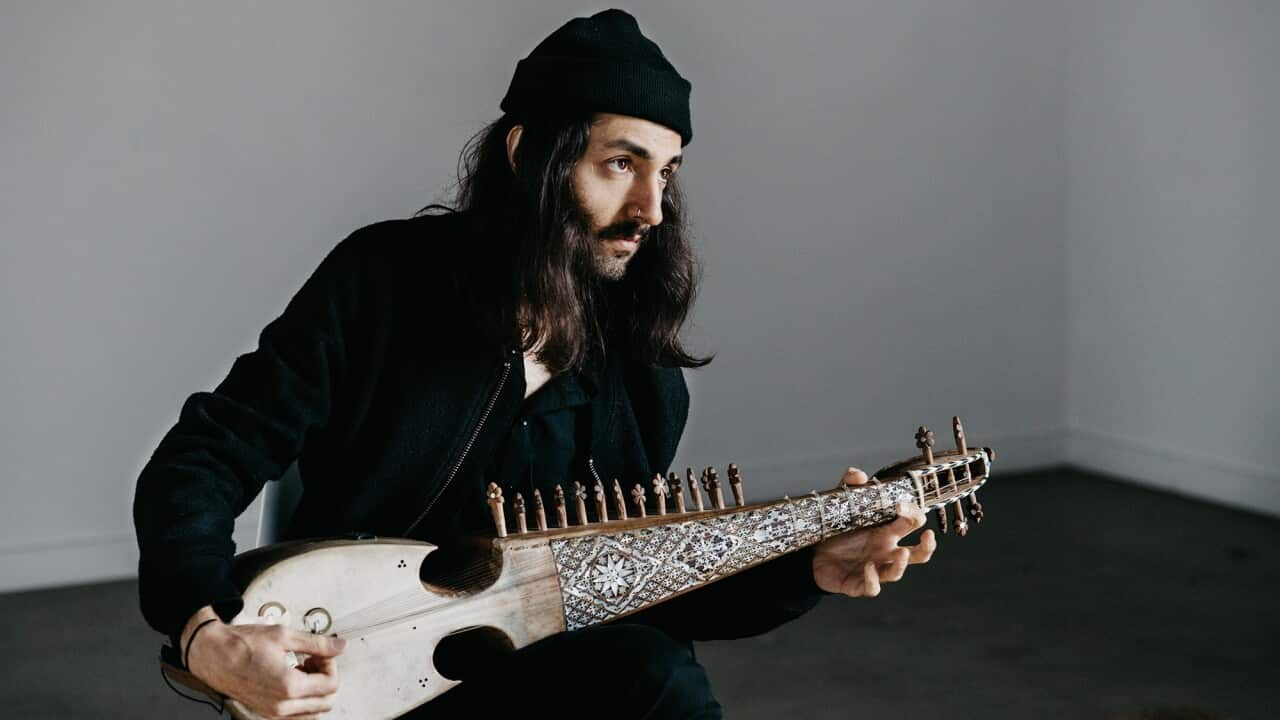The interview is in the Dari language
Historically persecuted and marginalised in Afghanistan, the Hazara community of Australia is calling for their human rights to be guaranteed and safeguarded during the ongoing peace talks in Doha between the Afghan government and Taliban.
The Adelaide-based Baba Mazari Foundation (BMF) issued a joint statement with other Hazara organisations from across Europe and North America, urging both parties to commit to protecting “fundamental principles of human rights, justice, freedom of religion and belief, the rule of law, and equality of all citizens of Afghanistan”.
The statement calls on the Taliban to “immediately cease all attacks against the Hazara regions and civilians throughout Afghanistan”. Named after the prominent Hazara leader who was killed by the Taliban in 1995, the foundation expressed its concern after the Doha negotiations stalled following the Taliban’s assertion that Sunni Hanafi jurisprudence be followed during the so-called Intra-Afghan talks.
Named after the prominent Hazara leader who was killed by the Taliban in 1995, the foundation expressed its concern after the Doha negotiations stalled following the Taliban’s assertion that Sunni Hanafi jurisprudence be followed during the so-called Intra-Afghan talks.

A number of Hazara diaspora organisations from across Europe, North America and Australia have called for an 'inclusive' Afghan peace deal. Source: Supplied/Basir Ahang
Hazaras are predominantly Shia Muslims, which has led to decades of persecution at the hands of the Taliban.
“[Our] concerns originate from the peace talks in Doha, after leaked information to the media showed that Taliban are persistent that peace deal or negotiations on peace deal should go forward based on their agreement with the Americans and based on Hanafi school jurisprudence,” said Hazara Lawyer and BMF board member Besmellah Rezaee.
Mr Rezaee says this approach is nothing but “egocentric” and a case of “history repetition”.
‘No change’ on the Taliban’s part
Many Australian Hazaras believe while post-2001 Afghanistan is much different to what it was under the Taliban regime, early signs suggest not much has changed on the part of the fundamentalist group.
La Trobe University lecturer Dr Niamatullah Ibrahimi believes this leaves no ground for optimism for the Hazaras in Afghanistan. The statement by the Hazara diaspora highlights “widespread concern about the potential impact of the current talk with the Taliban on the fragile situation of Hazaras in Afghanistan”, he said.
The statement by the Hazara diaspora highlights “widespread concern about the potential impact of the current talk with the Taliban on the fragile situation of Hazaras in Afghanistan”, he said.

Dr Niamatullah Ibrahimi is one of many Hazaras who have doubts about the peace talks in Qatar Source: SBS
“As a totalitarian movement that denies religious and political diversity, the Taliban presents the most serious threat to the future of an order in which the Hazaras and other marginalised groups are accepted as equal citizens.
There is little to prove in terms of Taliban behaviour or even public statements that demonstrate the Taliban is dissociating itself from its long history of persecution of the Hazara on religious grounds.
Hazara Academic Farkhondeh Akbari says since there is little evidence to suggest the Taliban has changed for the better, a peace agreement with the Taliban puts a lot at stake.
“A ‘peace settlement’ with the Taliban is concerning because what type of ‘peace’ is this going to be? What is the cost of making peace with the Taliban?” she said.
“There is deep mistrust in believing the Taliban on their words or believing their commitment for peace – unless it is their version of peace.
“In a rotten peace settlement, the price will be paid by the people of Afghanistan, especially groups with the lesser power and agency.” Australian National University professor of diplomacy William Malley believes there are "good reasons" for Hazaras to be apprehensive about the negotiations in Doha as the Taliban has "already sought to marginalise them".
Australian National University professor of diplomacy William Malley believes there are "good reasons" for Hazaras to be apprehensive about the negotiations in Doha as the Taliban has "already sought to marginalise them".

فرخنده اکبری که در کودکی با خانواده خود از افغانستان آواره شد، میگوید تصمیم داشت در نهایت برای کار زادگاه خود برگردد. Source: SBS News
“Already, even at the procedural stage, the Taliban, an overwhelmingly Sunni Muslim group, has sought to assert the primacy of Hanafi Sunni jurisprudence, implicitly marginalising the Jafari Shiite school,” he said.
A bloody history
It has been well documented that the Taliban committed several atrocities against the Hazaras over decades, including the massacre of thousands of members in 1998 in the Mazar-e Sharif city of Northern Balkh province.
Taliban fighters executed prominent Hazara leader Abdul Ali Mazari in 1995 after inviting him for talks in Kabul and later threw his body from a plane in the Ghazni province.
In 2001, the Taliban destroyed one of the most monumental statues of Buddha located at the heart of Hazara territory in the central province of Bamiyan. Hazara Academic Farkhondeh Akbari said members of the Australian Hazara community chose possible “death in the ocean” over living under “the Taliban's brutal rule” in the hope of “a dignified life” in Australia and other western countries in the late 90s and early 2000s.
Hazara Academic Farkhondeh Akbari said members of the Australian Hazara community chose possible “death in the ocean” over living under “the Taliban's brutal rule” in the hope of “a dignified life” in Australia and other western countries in the late 90s and early 2000s.

The empty shell of the 36m demolished Buddha statue is seen behind a Taliban soldier on March 26, 2001 in Bamiyan, Afghanistan. Source: AAP
Ms Akbari, who fled Afghanistan as a teenager, said community members still have flashbacks of the brutalities that happened to them under the Taliban’s black and white emirate flag as the group finally agrees to sit on a US-brokered negotiation table.
She is now completing her PhD at ANU in Canberra, which is centred on insurgent groups like the Taliban, and prospects for peace.
“The Taliban have committed atrocities across Afghanistan and to all people and from all ethnic and religious backgrounds,” she said.
However, there are patterns of targeted attacks against the Hazaras, which is the extension of the Taliban's historical hatred and discriminatory policies.
Dr Ibrahimi said: “After a prolonged history of persecution and marginalisation, since 2001 the Hazaras have made some important but fragile gains under the political order backed by the international community.”
“At the centre of the post-2001 order is a basic acceptance and recognition of the country’s social, political, and religious pluralism,” he added.
“Most Hazaras have a bitter memory of persecution at the hands of the Taliban and the group continues to pose the most serious threat to the security and freedom of Hazaras in Afghanistan.
“In fact, Hazara asylum seekers began to arrive in large numbers in Australia and Western countries towards the end of the 1990s, fleeing mass persecution including massacres at the hands of Taliban militias in Afghanistan.” Professor Maley said: “There is little to suggest that any soothing comments on the Taliban's part about Hazara rights would amount to much more than lip-service to the demands of Hazaras and to those in the wider world who worry that Afghanistan could witness renewed pogroms similar to that which occurred in August 1998 in Mazar-e Sharif, in which thousands of Hazaras were killed.”
Professor Maley said: “There is little to suggest that any soothing comments on the Taliban's part about Hazara rights would amount to much more than lip-service to the demands of Hazaras and to those in the wider world who worry that Afghanistan could witness renewed pogroms similar to that which occurred in August 1998 in Mazar-e Sharif, in which thousands of Hazaras were killed.”

Professor William Maley says falling into a mindset that any agreement is better than no agreement would be a recipe for disaster. Source: SBS Dari
‘Lasting peace’ not possible without inclusion
If the country is supposed to have a stable, meaningful and lasting peace, based on a “comprehensive” peace deal, human rights and universal values should be imposed on the Taliban side, Mr Rezaee said.
“God forbid, if such an agreement is reached that ignores the rights of minorities and the Hazaras, that would certainly be a short-term and unlasting deal, and Afghanistan will once again see wars that will be worse than that of last 20 years,” he said.
“The Hazara and Shia community is no longer the community under the Taliban regime, the Hazara diaspora is a very powerful diaspora spread around the world now. We have a very good relationship with the world, with countries that support human rights and democracy.” Ms Akbari believes a “meaningful” peace settlement is one that puts people front and centre and silences the gun with a “guarantor” to make sure parties hold on to what they’ve signed.
Ms Akbari believes a “meaningful” peace settlement is one that puts people front and centre and silences the gun with a “guarantor” to make sure parties hold on to what they’ve signed.

Besmellah Rezaee says a peace deal in favour of the Taliban will not be a lasting one. Source: Supplied/Besmellah Rezaee
To make sure the Taliban don’t have the upper hand at the negotiating table, Ms Akbari said it’s important that the Afghan government keeps resisting on the battlefield.
“The urgency for a ‘peace settlement’ should not neglect the critical ingredients for peace – such as recognising rights, respecting diversity, and meeting the satisfaction of all people of Afghanistan on all critical issues. Otherwise, it may just restore another cycle of war.”
The role of the international community
Mr Rezaee said the international community went to Afghanistan with the rhetoric of human rights and democracy and can play a key role in securing a peace deal that is not in favour of Taliban.
“If it wasn’t for America’s peace deal with the Taliban, Taliban wouldn’t have agreed to sit on the negotiation table with the Afghan government,” he said.
The international community, including the US and Australia, have made great sacrifices in Afghanistan and shouldn’t let those sacrifices go uncounted, he added.
Prof Maley warned the international community to avoid falling into a mindset that any agreement is better than no agreement at all costs.
“This would be a recipe for disaster,” he said.
“A rotten compromise in Afghanistan will not lead to peace: it is much more likely to be the trigger for an escalation of violent internal conflict, and in the worst-case scenario, a resumption of civil war.”





